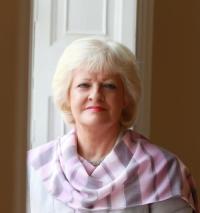ICTU women’s seminar considers gender pay gap
by Lughan Deane
 |
| Patricia highlighted that 186,000 women work between 20 and 29 hours per week compared to just 65,000 men |
|
Congress general secretary Patricia King gave a presentation at the ICTU women’s seminar in Portlaoise earlier this month on the effects that the gender pay gap has on women at work.
Patricia began her presentation by placing her remarks in the broader context of the recent national – and international – conversation on the pay gap. She referred, for example, to recent controversies at RTE and at the BBC. She emphasised that the gender pay gap is a complex and nuanced issue that is baked into the less-than-ideal structures of the labour market as they currently exist.
422,000 women in Ireland are engaged full-time in home duties, compared to just 9,900 men. The lowest-paid sectors – those of retail and food – employ a high proportion of women. Patricia said that this showed low pay is highly feminised.
Startling statistical evidence shows that significantly more women than men work part-time hours. For example, Patricia highlighted that 186,000 women work between 20 and 29 hours per week compared to just 65,000 men.
Patricia stressed that the gender pay gap is not exclusively a private sector problem. There are 15 male secretaries general in the civil service, for example, compared to just two females. She spoke about the campaign for a national living wage, which is supported by IMPACT, and pointed out that twice as many men as women currently earn the national minimum wage.
Patricia said that the tone for these dynamics of pay inequality was set from the top. She pointed out that in political life just 22% of those elected to the Dáil are women and that just 32% of senators are female. Patricia warned that stiff challenges remained for the future where the gender pay gap was concerned, but that there was cause too for optimism. The number of women at work, for instance, rose 40% between 1971 and 1992.
The need for an adequately resourced childcare sector, as advocated by the Early Impact campaign, was also emphasised. Patricia referenced the gender pay gap transparency measures that IMPACT has called for.
IMPACT lead organiser, Linda Kelly, also made a presentation on the gender pay gap. Linda’s contribution focussed mainly on gender pay gap reporting. She outlined employers’ objections to the Bill and set out IMPACT’s responses to those objections.
 |
Related Articles
|